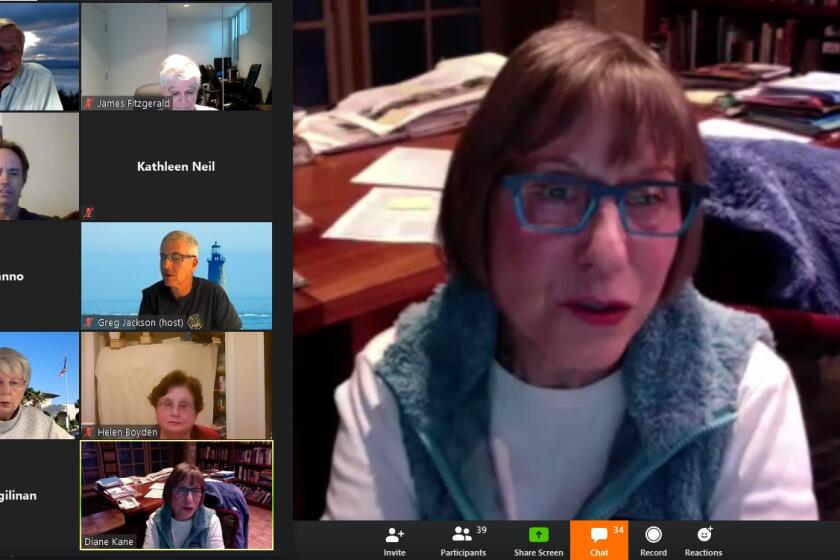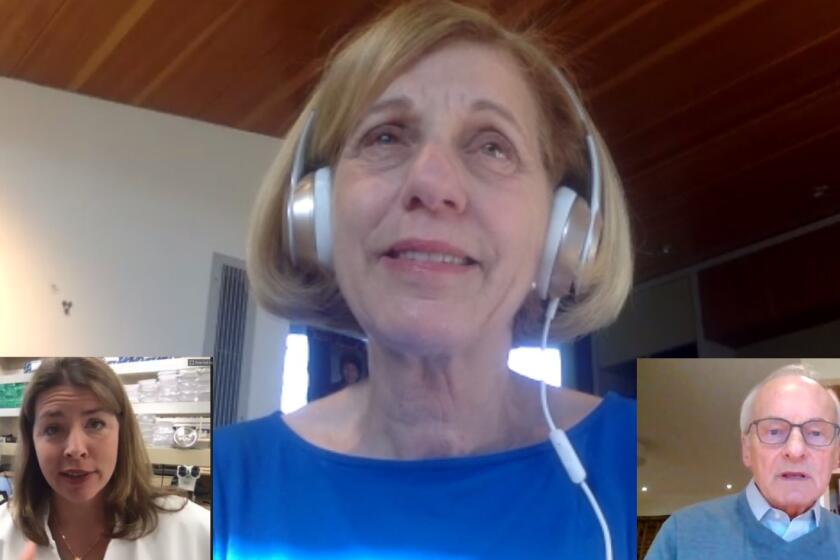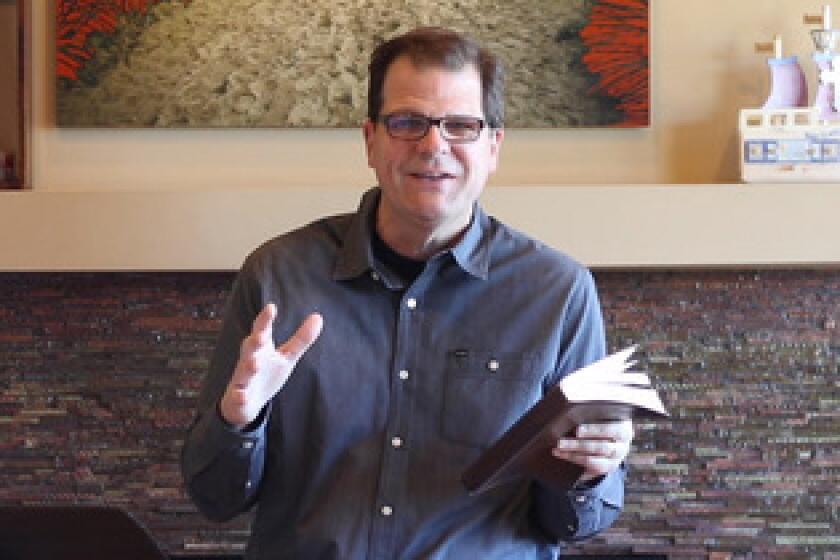PRIMARY RESIDENCES ONLY! San Diego City Council members Barbara Bry and Lorie Zapf win on short-term vacation-rental limits
On Monday, July 16, the San Diego City Council gave a resounding thumbs-up to the short-term vacation rental (STVR) ordinance proposed by Council members Barbara Bry (District 1) and Lorie Zapf (District 2), after delivering an equally resounding raspberry to Mayor Kevin Faulconer’s more business-friendly proposal.
The Bry/Zapf ordinance, which passed 6-3, will allow vacation rentals in primary residences only, banning short-term stays in multiple properties. (In the only exception, owners of additional units on the same property as their residence may also rent them out.) It will also impose licensing fees of $949 annually — believed to be the steepest in the U.S.
The intent of the ordinance, which goes into effect in July 2019, is to save neighborhoods from infiltration by investors with no investment in them other than monetary.
“Today may be an opportunity to tell San Diegans that we put them first,” Bry said from the City Hall dais.
Faulconer’s proposal, which failed 6-3, would have allowed San Diegans to rent out their primary residences while away for up to six months per year, and a second STVR with no limit on the number of annual rental days.
The new law will also regulate Mission Beach, whereas Faulconer’s original ordinance did not — although earlier on Monday, the Mayor released a memo stating that he no longer favored allowing unlimited rentals there but did favor grandfathering in longstanding ones that already paid transient occupancy taxes. (That grandfather clause was not included in the Bry/Zapf proposal.)
Both votes concluded a marathon six-hour meeting at City Hall attended by hundreds of charged-up San Diegans supporting each side — many of whom were given time to speak. Although STVR advocates said they were a boon to the economy and helped struggling residents pay for their housing costs, opponents complained that they replace neighbors with a revolving door of rude partiers and eliminate nearly all long-term beach housing rental options for individuals, couples and families.
As expected, the Council members who voted for the Mayor’s proposal — Mark Kersey (District 5), Chris Cate (District 6) and Scott Sherman (District 7) — did not represent the coastal communities hit hardest by STVRs. In an unexpected development, however, Kersey voted in favor of Bry/Zapf, and Council member David Alvarez (District 8) voted against it.
This is the first STVR ordinance the City Council has been able to pass since home-sharing went mainstream about 10 years ago. Since that time, San Diego’s inventory of vacation rentals has grown to more than 11,000. The Council’s first attempt at specifically regulating the new industry, last Dec. 12, failed to secure five votes either for a similar Bry/Zapf proposal or for a more lax one co-presented by Council members Sherman, Kersey and Chris Ward (District 3).
Reaction to votes
“I introduced my compromise proposal to help the City Council find enough common ground so they could pass comprehensive short-term rental laws, and with the additional amendments made today we’ve finally achieved that goal,” Faulconer said in a statement after the votes. “As I’ve said repeatedly, the most important thing is that we have an established set of rules that protects neighborhood quality of life through increased oversight and enforcement.”
After helping to defeat the Mayor’s ordinance, Bry thanked her supporters — singling out La Jollans Mike Costello and Joe LaCava — saying: “I really appreciate your being here today, hanging in. The fact that you all took the time to come means a lot to me and this city.”
Bry then called Jan Goldsmith, the City attorney preceding Mara Elliott, to the dais to help her deliver a civics lesson. She asked who his client was. Goldsmith objected, saying that he had already identified his client. Bry asked him to repeat the information, to which Goldsmith replied that he represented STVR agencies Airbnb and HomeAway.
“I just want everyone to know that when you are a lawyer, you need to represent your client to the best of your ability, and that’s what Mr. Goldsmith is doing today and we need to keep that in mind,” Bry said to applause and yelling from the audience.
Following both votes, Zapf released a statement reading: “I wasn’t elected to serve the interests of out-of-town investors, I was elected to serve the needs of my constituents.”
La Jolla Town Council president Ann Kerr Bache, who attended the meeting, told the Light she was guardedly optimistic about the new law.
“Hopefully, there will be a reversal of some of the blood lost,” she said, adding that the ordinance Bry tried and failed to get passed last Dec. 12 “wasn’t even as good as this one.”
However, Kerr Bache added, “I think we shouldn’t lose sight of the fact that there was a law on the books prohibiting commercial activity in residential areas, and that’s been wiped off the books, and it remains to be seen how this will work.”
Noting that this ordinance won’t take effect for a full year, Kerr Bache — who dedicated the July 12 Town Council meeting to a public forum from her STVR Working Group — said that “things aren’t going to turn on a dime, so there’s no recourse tonight if there’s some bad behavior going on next to you in an STVR.”
Also in the audience was Dick Freeman, former San Diego Padres president and a nearly 40-year resident of La Jolla, who said he now lives across the street from a troublesome STVR.
“I’m very pleased, to say the least,” Freeman told the Light. “I will admit, there’s a lot of it I have to get a better understanding of, but I really appreciate all the effort put in by Barbara Bry and the working group. From everything I could tell, it was a very positive outcome.”
Airbnb, not surprisingly, had a difference of opinion. In a statement to the San Diego Union-Tribune, it called the vote “an affront to thousands of responsible, hard-working San Diegans” that “will result in millions of dollars in lost tax revenue for the City.”
HomeAway released a similar statement, claiming that “this outcome will not only negatively impact the local economy but will deny many San Diegans of their private property rights.”
Leading up to the vote, Bry and Zapf campaigned hard for their ordinance, holding a joint, grassroots-style press conference in the backyard of a Pacific Beach cottage three days earlier.
Backed by community activists holding signs and wearing shirts with slogans such as “Neighborhoods Are For Neighbors,” the Council members attacked both the Mayor’s proposal and Airbnb.
“Airbnb started as a simple way for people to earn extra money by renting out your sofa or spare bedroom,” Bry said. “It’s evolved into a multi-billion-dollar industry in which investors are snapping up homes, in beautiful neighborhoods like this … and turning them into mini hotels.
“It’s time for Airbnb to return to its roots of primary residents only,” she said.Also lobbying hard against the Mayor’s proposal were organized labor and the California hotel lodging industry association.
What are the new regulations?
The new ordinance — to be enforced by the City’s Code Enforcement Division, San Diego Police, Treasurer’s Office and City Attorney — will require all short-term rental hosts to:
1) cease operating STVRs not located in their primary residence;2) comply with all sections of the “good neighbor” policy;3) get a $949 annual license from, the City;4) get a transient occupancy tax certificate;5) pay the tax and a monthly affordable housing impact fee;6) include a short-term residential occupancy license number on all advertisements; and7) keep detailed rental records for three years.
Get the La Jolla Light weekly in your inbox
News, features and sports about La Jolla, every Thursday for free
You may occasionally receive promotional content from the La Jolla Light.




